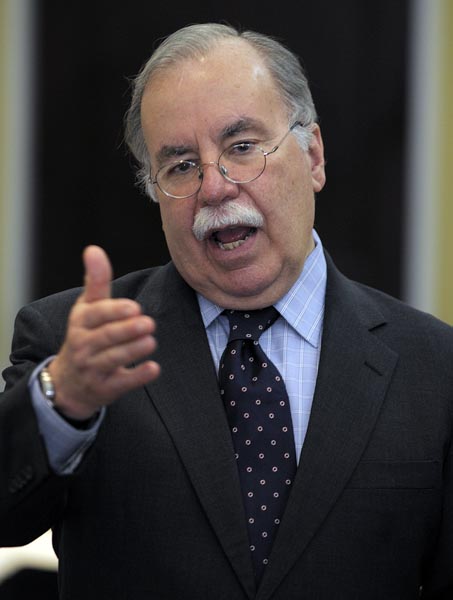Effects of tax switch sets off debate between economists

Editor’s note: A Monday story on the upcoming switch from a Sales and Use Tax (SUT, or IVU in Spanish) to a Value Added Tax (VAT, or IVA) and the extension of SUT to professional and business-to-business (B2B) services set off an animated duel among experts. The duel, carried out civilly by e-mail, did not end in any deaths.
The switch-over from a B2B IVU to a B2B IVA should not raise consumer prices nor costs to business, according to Economist Vicente Feliciano, president of Advantage Business Consulting.
Reacting to Economist José Joaquín Villamil’s assessment that the tax will have a damaging impact on the economy and affect the cash flow of companies, especially small ones, Feliciano insisted the business sector will be better off under the upcoming tax system because it will be able to take a tax credit not available under the current SUT system.
As Feliciano pointed out, companies that now pay a 4 percent B2B SUT tax on services cannot take a credit for this tax payment. However, starting on April 1, when SUT turns to VAT, they will be able to take a credit for the much higher B2B tax of 10.5 percent.
Under a VAT, each link in the supply chain has to make a tax payment for which the Treasury Department extends a credit. In the case of a service, the company soliciting the service pays the B2B tax to the company or professional providing the service who then remits the payment to the Treasury Department. The former takes the credit.
As to cost increases related to implementing the higher B2B tax, Feliciano said that many businesses already had to integrate into their accounting a system of credits and debits in order to pay for the IVU charged at the docks.
He mentioned as an example the case of apparel stores.
“The apparel store already deals with the system of IVA credits and debits because it had to set it up in its accounting when they (the government) started charging the dock IVU with a system of credits and debits similar to IVA. After a tumultuous beginning, the system is now operating very well,” Feliciano said.
“For retailers, transitioning to IVA will be simple. The impact on the cash flow of businesses upon implementation of the charge at the docks, while it was undeniable, it was also manageable and it was not a central problem in the implementation of the charge at the docks.”
Villamil, for his part, agreed with Accountant Kenneth Rivera’s comment in Monday’s story that the B2B tax won’t keep firms from entering the local market. However, he insisted that it will encourage Puerto Rico businesses to seek services outside the island, instead of obtaining these services locally, which would help the economy.
“This is particularly true of services such as back office services, data processing, data warehousing and data mining and many others that don’t require a physical presence in the island. Local firms could shift business in that direction since 11.5 percent is a substantial cost increase for locally provided services that cannot be passed on to a consumer,” Villamil said.
“The two most negative impacts of the tax are that it discriminates against local small and medium size firms and that in an economy that is not growing it will have a major impact on costs that a growing economy could mitigate, but not in ours. It is, as I stated, a tax on economic activity not consumption and it hits the sector that has the most potential for growth in the near future, advanced services,” he said.









